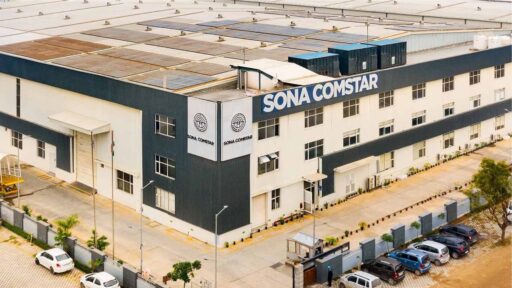
Sona Comstar, a prominent auto engineering firm, is set to invest INR 1,200 crore over the next three years to ramp up production for its substantial order book, which totals INR 22,600 crore. A significant portion of these orders, nearly INR 18,000 crore, is dedicated to the electric vehicle (EV) segment.
Recently inaugurating its second plant in Mexico, Sona Comstar is also considering establishing a greenfield plant in India as part of its expansion strategy. Despite the Red Sea crisis impacting margins by 0.35-0.4% this quarter, causing delays in shipping and tripling freight rates, the company remains focused on its growth trajectory.
Vivek Vikram Singh, Managing Director and Group CEO of Sona Comstar, highlighted the company’s rapid growth in the EV sector. “Our order book has grown from INR 14,000 crore in FY22 to INR 22,600 crore in FY24, with 79% or just under INR 18,000 crore from the EV segment. Of these EV orders, 80% are for global markets and 20% are domestic. Specifically, 63% of the EV orders are for e-passenger vehicles, 10% for e-two and three-wheelers, and 6% for commercial and off-highway vehicles. EV growth is our top priority,” Singh stated.
The planned INR 1,200 crore capital expenditure will predominantly support EV-related projects. Sona Comstar, which started with two plants in 2016, now operates 10 facilities, with North America generating 40% of its revenue, India 28%, and Europe 26%. The company’s product range includes starter motors and differential gears, with the EV segment contributing 29% to its revenue in FY24, up from 14% in FY21.
However, geopolitical tensions in the Middle East and the ongoing Red Sea crisis have created challenges, affecting production cycles and squeezing margins. “Although we maintain a 28% margin, the increased freight costs have led to a minor impact of 0.35-0.4% on revenue this quarter,” Singh explained.
Sona Comstar’s strategic investments and expansion plans underscore its commitment to leading the EV transition, despite facing temporary logistical hurdles.
